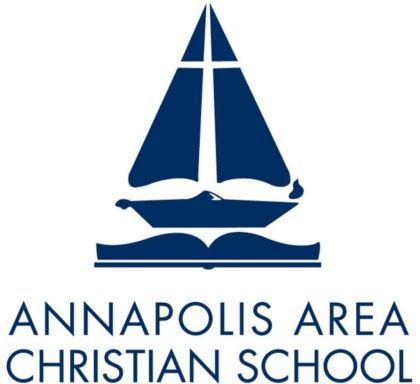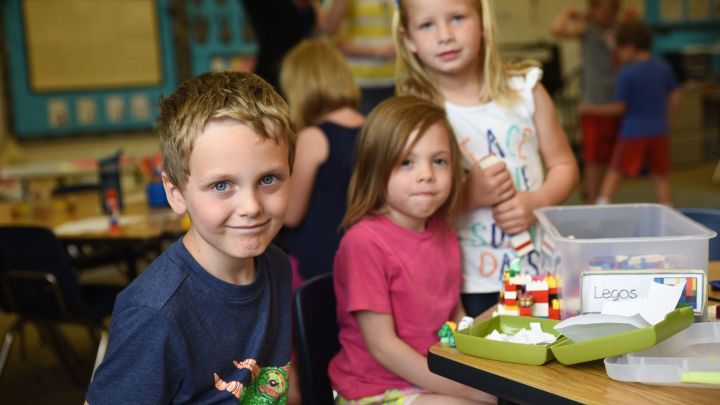Embracing a fully inclusive education model can seem daunting. But you are not the first one to walk this road. With support from All Belong, many other schools have successfully journeyed to a place of inclusion and belonging. The following case studies will help you understand how other schools have embraced this opportunity:

Partner since 2014
Annapolis Area Christian School – Annapolis, MD
Background
For many years, Annapolis Area Christian School struggled with how to serve students who needed extra support. They had three tutors for their four campuses, and those tutors provided one-on-one tutoring for students with learning disabilities(mostly in reading). This service cost families thousands of dollars each year.
The school wanted to do more but didn’t know how. As a result, applications were filtered for “fit.” The school thought it was doing the right thing by telling families of children with disabilities that they couldn’t provide support. They thought they were saying, “We care.” But what families heard was, “You don’t belong.”
Starting the Journey
Rick Kempton became the head of school in 2011. He had past experience with more diverse student bodies and was passionate about helping Annapolis lead the way to inclusive education
In 2014, Rick, the four principals, and a few teachers came to Michigan for a site visit with All Belong (then the CLC). The leaders who came with him had mixed emotions. Some were excited; some were not. They had many concerns, including:
- We don’t have enough staff.
- We can’t be a college prep school and do this.
- We don’t know how to meet the needs.
- We don’t have the same resources as the public schools.
For two days they toured schools that took an inclusive approach to education. The site visits changed minds and turned the conversation around. The attendees voted unanimously that inclusive education was the direction they needed to take. Rather than feeling alone, the staff and leadership realized that the experts at All Belong would walk beside them every step of the way. Knowing other schools were doing it successfully gave them energy and confidence.
The Results
Annapolis Christian partnered with All Belong because they realized that their mission demanded it. Over time, they had focused more on being a college prep school than on their mission of "helping students become followers of Jesus."
Over time, they implemented several significant shifts in their approach.
They now have 20 Education Support Staff and six Special Education Teachers. The tutors used to work independently from the general education teachers. Now the education support staff, special education teachers, and general education teachers work collaboratively. The structure is not built for a few students, but rather for all students.
A few parents are paying a bit extra for services, but most are not. Annapolis is moving toward a goal of tuition equity.
Approximately 25% of their students are receiving some kind of support service, reflecting the statistic that approximately one in four people have some form of disability, whether it be visible or not.
They still screen applicants, but now it’s for mission fit: they welcome families who want a Christ-centered education for all their children. Enrollment has increased, as has the number of families who are seeking extra services for their children.
In the beginning, some of the staff resisted change. The school had to say “yes” to enough students to generate critical mass, and then figure out how to do the work. The teachers realized that they had to change, but that they also had Educational Support Staff and the resources of All Belong to help them navigate. Now it is a gift to see teachers learn new strategies and build relationships with each family. They are excited about partnering with the support staff and working as a team.
Financial Considerations
Donors covered some of the increased overhead initially, and the donor base has grown. In addition, they have taken advantage of Title II money. The school has worked to realign some roles but has also had to make choices about investing in inclusive education versus other opportunities. In addition, they have gained students and increased enrollment. They are still working out long-term financial sustainability questions but have faith that God will provide.
Lessons Learned
Here are just a few words of wisdom that Annapolis Area Christian shared:
Do a site study. It’s a great tool to help you understand where you are and where you can grow.
Start with current families that have one child who is not being served. Learn to wrap services around those students. The teachers will then see how those supports can serve more students.
This change might feel very big, but the resources and expertise of All Belong will be there every step of the way. You are not alone.
Don’t think you have to do it all and do it perfectly tomorrow. This is a journey, and each school is different. Move slowly and educate people first. Then look for small wins and keep pursuing the goal.
Realize that families are not asking for perfection. They will be thrilled to have a place to belong.
Lift up your effort in prayer. Ask God to show you the next best step, and trust that He will meet you there. There will be lots of steps of faith!
Don’t lose sight of the fact that we exist for Jesus. We can’t waver from that. This is what Christian schools should be about. All kids should find their place and be loved.
School Profile
Location: 30 minutes outside of Washington DC
Student body: 850 students on four campuses
Grades: K-12
Staff: 120

Partner since 2015
Living Stones Academy - Grand Rapids, MI
Background
Living Stones Academy was founded in 2009 with the goal of making Christ-centered education available to all students. Knowing that many people perceived Christian education to be an exclusive opportunity for the rich and well-educated, they intentionally chose an urban location and a funding model that would invite cultural, racial, and economic diversity in the student body.
Starting the Journey
Aaron Winkle became the head of school in 2015, just as Living Stones was seeking to expand its vision of inclusive education. Parents of a child who had cerebral palsy and was nonverbal had approached the school, seeking to enroll her at Living Stones. The school staff was curious and open, but at the same time unsure of how to proceed with this extension of diversity. They were particularly concerned about how to meet the physical needs that this and other future students might have. So they contacted All Belong (then CLC Network) to do a site visit with a school that had embraced inclusive education.
That visit inspired them to take one step of faith, and then another. They relied heavily on All Belong’s counsel and resources, which was rooted in decades of experience. For each question that was asked, All Belong could provide answers.
The Results
Living Stones chose to say “yes” to students with varying abilities. That was not a one-time decision. The questions, and the answers, continue to look different as they move forward. Living Stones has learned to become better at reevaluating and adjusting. They will be the first to say that this is complex work. But their vision comes from Jesus, who said, “Let the little children come to me, and do not hinder them, for the kingdom of heaven belongs to such as these.” (Matthew 19:14)
From a staffing standpoint, they had one student support person when they began this journey in 2015. Today, they have ten. This includes a director, five paraprofessionals, one part-time counselor (funded with outside dollars), and three part-time tutors (funded with Title 1 dollars). The school had to acknowledge that enrolling students with all different kinds of needs would require additional and different support.
Through all of their work, they are focused on helping students learn. That learning includes empathy, compassion, and forgiveness as well as reading and writing. For them, inclusive education provides learning that could not happen any other way. They are equipping students to love as God loves and to see the world through other people’s eyes.
Originally, inclusive education was seen as a risk. Now that they are seven years in, however, Living Stones would say that staying put is riskier than moving forward. Staying safe is a risk because it means missing out on amazing experiences for students and the community.
That message resonates with many families. The school has grown from 140 to 240 students in the last seven years.
Financial Considerations
Living Stones views inclusivity as an investment that is rooted in the mission and supports all students. They start from a position of tuition equity, and families pay on a sliding scale based on financial resources.
In support of that model, Living Stones raises 40% of its budget through donor support so that families of all financial means can have a Christ-centered education for their children. The donors share this commitment and vision. Living Stones’ non-tuition revenue goal has increased from $275,000 in 2015 to $675,000 in 2022-23. A notable percentage of that growth has gone toward funding inclusion as a strategic priority. They also pursue all public dollars that are available (such as Title I and II funding programs and COVID support funds).
Living Stones is committed to inclusive education. The cost is a legitimate concern, but they make the choice to allocate resources in this way. Living Stones believes that if they execute this commitment faithfully, God will provide the resources. And He has…for 13 years.
Lessons Learned
Here are just a few words of wisdom that Living Stones shared:
- Don’t be scared when you visit a school that has been doing this for a long time. Each journey begins with a single step and the only way to make progress is to start. We have been doing this for seven years and are still growing.
- Our inclusive model is a significant hiring advantage. We attract teachers who want to work for an organization with a bold vision. We have been able to attract and retain quality staff.
- Inclusive education cannot be a pet project. It has to be embedded in your DNA.
- We were afraid that our good intentions would not be enough for students with significant physical needs. The parents were not concerned, but we were. All Belong played a huge role in helping us take steps to overcome those fears.
- All students, regardless of abilities, need to be known by name, to be loved, to have friends, and to receive support and praise. Those are things we can all do!
- We must provide all the support that a student needs, but no more. We should not prevent all struggles, because it is in struggling that students learn the most.
School Profile
Location: downtown Grand Rapids, MI
Student body: 240 students
Grades: Preschool- 6th Grade
Staff: 22
